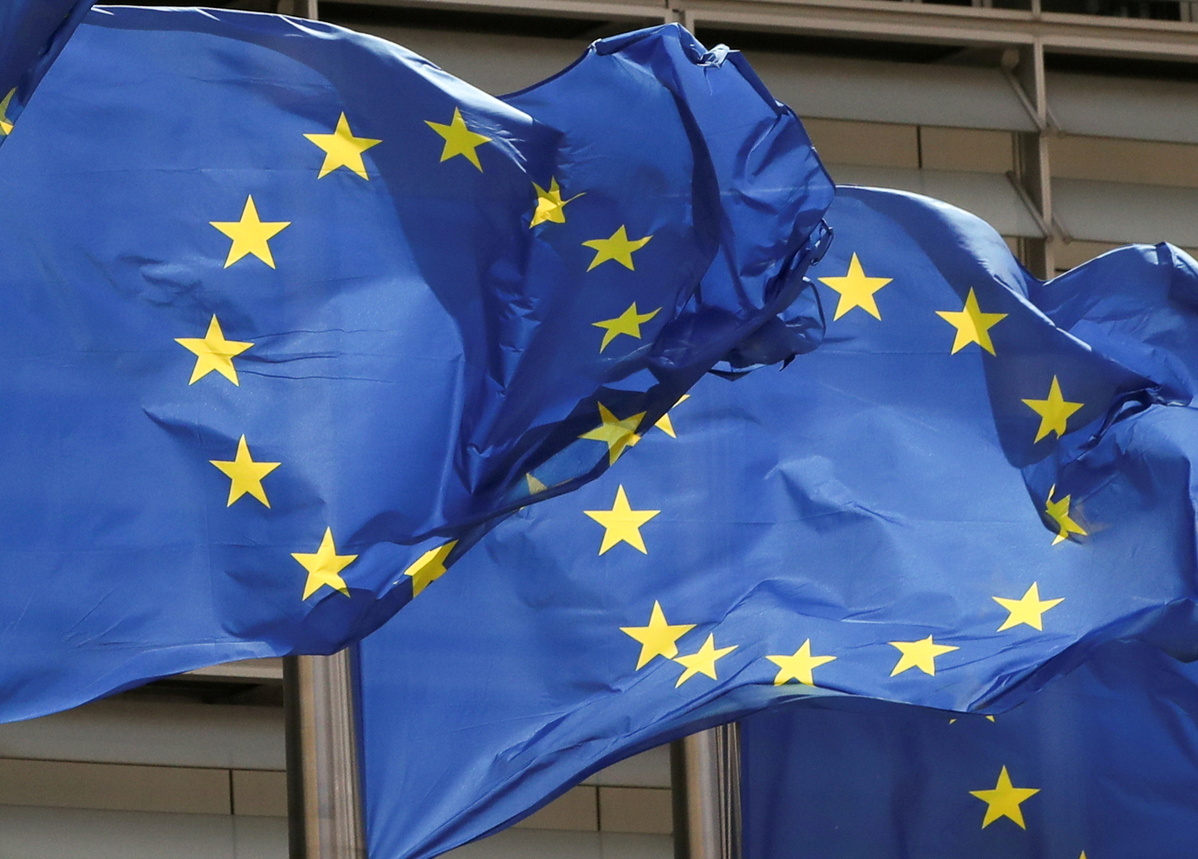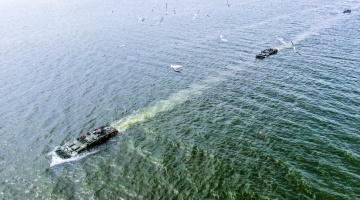
[Photo/Agencies]
By Jia Ruixia
As Ukraine presses for NATO membership to secure its future, the alliance faces deeper questions about its direction and unity. Many are wondering what the future of the North Atlantic Treaty Organization would be like given US president-elect Donald Trump's skepticism over the military alliance. Despite the uncertain outlook, however, the United States has already steered NATO away from its avowed role as global peacekeeper toward a confrontationist and meddling organization because of its continued eastward expansion and attempts to interfere in Asia-Pacific affairs.
The 75-year-old NATO is a relic of the Cold War era, not least because it deploys a large number of nuclear weapons across Western Europe and Turkiye and conventional forces across the world. Established in 1949 with 12 founding member states, NATO has expanded to include 32 members. Throughout NATO's history, the US has controlled the defense system of European countries, regarding it as a symbol of its hegemony.
For the past few years, the transatlantic military alliance, led by the US, has been trying to establish its presence in the Asia-Pacific region to maintain its global hegemony. In its Washington Summit Declaration in July, NATO said that it would continue to support Ukraine on "its irreversible path to full Euro-Atlantic integration, including NATO membership", that China poses a challenge to "NATO's interests, security and values", and that it attaches great importance to Asia-Pacific partners and cross-regional cooperation in "supporting Ukraine, cyber defense, countering disinformation, and technology".
However, NATO's summit in Washington did not project solidarity as the US expected, for Spanish Prime Minister Pedro Sanchez urged the military alliance leaders to adopt "consistent political positions" on Ukraine and Gaza instead of resorting to "double standards".
Besides, Hungarian Prime Minister Viktor Orban is opposed to Ukraine joining NATO, and paid surprise visits to Kyiv, Moscow and Beijing before the summit and soon after Hungary assumed the presidency of the Council of the European Union on July 1. EU officials, the US and NATO have criticized Orban for visiting the three capitals. Ignoring the criticisms, Orban wrote in an article published in Newsweek in September that "If it (NATO) chooses conflict instead of cooperation, and war instead of peace, it will be committing suicide."
Slovak Prime Minister Robert Fico, too, is opposed to Ukraine's NATO membership. In fact, one month after winning the Slovak election on Sept 30, 2023, Fico halted military aid to Ukraine. And Turkiye, whose military force is second only to the US in NATO, said the transatlantic military alliance resorts to double standard on international laws.
Turkiye also denounced Israel's assault on the Gaza Strip while maintaining neutrality on the Russia-Ukraine conflict. Turkiye President Recep Tayyip Erdogan's close ties with Russia have made the US uncomfortable.
Equally important, during NATO's summit in Washington, Erdogan and Orban exchanged views on maintaining peace efforts.
That the European Union is divided, politically and ideologically, became clear when far-right parties won more than expected seats in the European Parliament election in June, splitting the parliament itself and the political structures of France, Germany, Italy, the Netherlands, Spain and many other EU countries. Following the election, voices against military aid to Ukraine and for a peaceful solution to the Russia-Ukraine conflict have been rising in the new European Parliament.
According to German think tank Kiel Institute, from Jan 24, 2022, to Aug 31, 2024, the US provided Ukraine with aid worth €84.73 billion ($89.19 billion), and the EU offered€118.23 billion, including military assistance such as long-range missiles, mobile artillery rocket systems, armored vehicles, air defense systems and ammunition.
In the eurozone, the government debt to GDP ratio was more than 80 percent in 2022 and 2023, though the debt ratio has declined slightly since then. At the end of 2023, the government debt to GDP ratio ranged from 20.2 percent in Estonia to 167.5 percent in Greece. In July, the EU executive initiated so-called excessive deficit procedures against Belgium, France, Italy, Hungary, Malta, Poland and Slovakia, whose deficits exceeded the bloc's fiscal limit of 3 percent of annual GDP in 2023. Many non-eurozone EU members are facing high debt risks, with most of the EU member states being NATO members.
The US has been calling on NATO members, especially European members, to increase their defense spending. The EU is in transition to low-carbon development in order to mitigate the effects of climate change. Along with that, the aging population and slow economic growth pose severe challenges to the bloc. As such, increasing the military budgets will deepen the financial plight of EU countries.
The United Kingdom government, in what can be seen as a response to the US' call, announced in July that the country was "broke and broken", showing an empty pocket to Washington.
Before the US presidential election in November, the US limited Ukraine's use of US weapons against military targets in Russia, which suggested the US did not want to expand the war. And although the transatlantic military alliance has somewhat eased the restrictions, the fact that Ukraine is not a NATO member leaves room for negotiation and compromise on Ukraine's neutrality or demilitarization.
But with Trump set to take office in 45 days, the Joe Biden administration lifted the ban on Ukraine using US-supplied weapons to strike deep into Russian territory, casting a shadow over global peace.
From heated debates in the United Nations to the G20 Summit in Rio de Janeiro in November, peace has been the priority for most countries, because they want to focus on development, especially green development.
The US does not want to give up its control in NATO and has used the military alliance to maintain its global hegemony. But NATO should not forget that it was created for the defense of Western European countries and stop acting against the will of countries around the world.
The author is an associate professor at the Institute of European Studies, Chinese Academy of Social Sciences.













